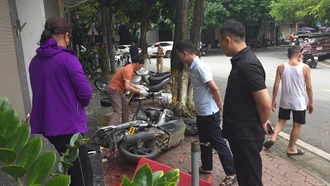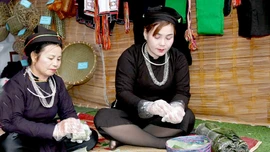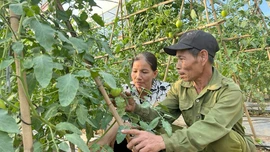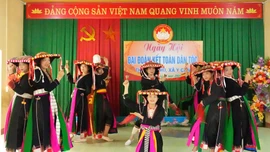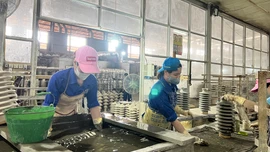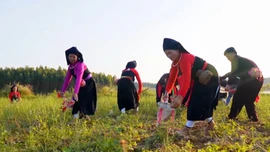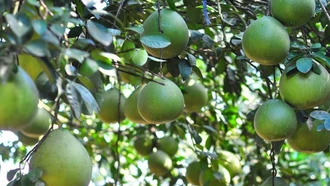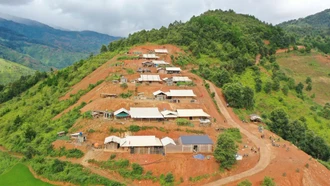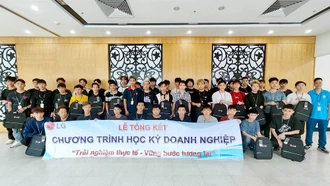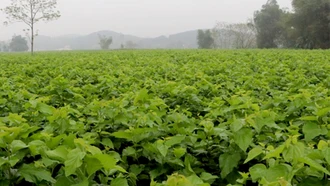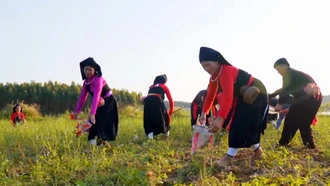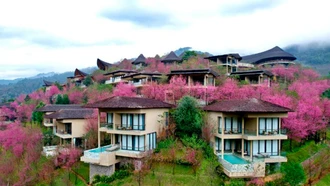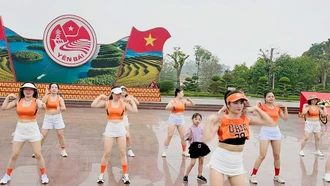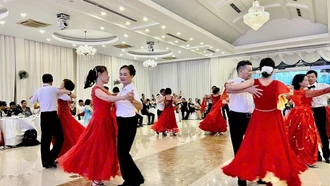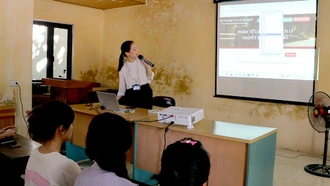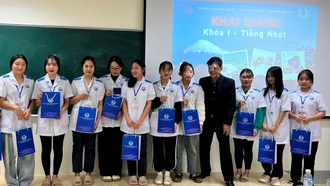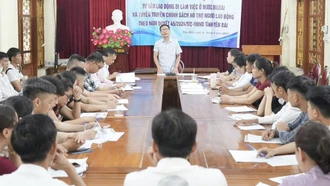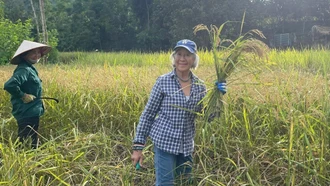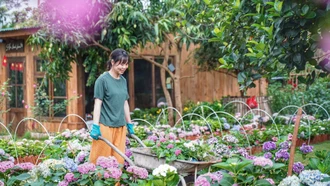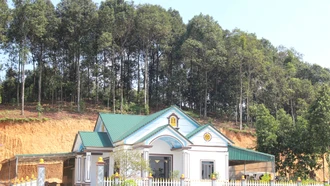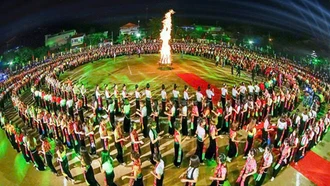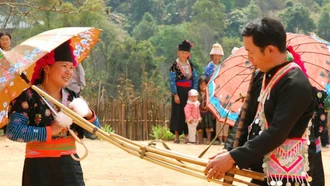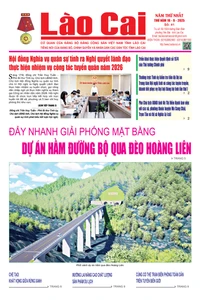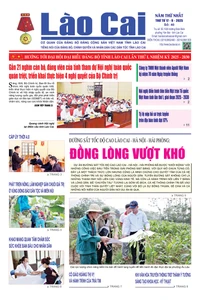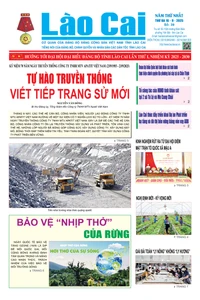From May to June each year, as the first rains of the season cool the Northwestern mountains, Mu Cang Chai dons a new visage-the water-pouring season. This is when locals channel water from streams into their terraced fields in preparation for rice planting. Water fills each level of the terraces, reflecting the sky above and forming giant mirrors across the landscape.
Sunlight dancing on the shimmering water, mingling with the brown of the soil and the green of young rice shoots, creates a magnificent, living ink painting. There is no place quite like Mu Cang Chai, where nature and human hands together craft a masterpiece of terraced fields, set among iconic landmarks such as Khau Pha Pass, La Pan Tan, Che Cu Nha, and De Xu Phinh.
From these high vantage points, visitors can gaze out over the terraced fields undulating along the mountainsides like soft silk ribbons floating through the great forest. Beyond scenic admiration, the water-pouring season also offers an ideal opportunity to explore and experience the unique agricultural culture of the Hmong and Thai people.
Activities like soaking the soil, guiding buffalo, and transplanting rice seedlings may appear simple, yet they are the culmination of deep-rooted knowledge and an intimate bond with the land and forest. Such hands-on experiences often leave lasting impressions on visitors.
David Miller, a tourist from the UK, shared his excitement: "I was truly amazed by the sparkling terraces reflecting the sky. The locals are incredibly friendly. I learned how to plant rice, and it was so enjoyable to immerse myself in their daily life."
The journey to Mu Cang Chai during the water-pouring season is an unforgettable experience. From Hanoi, travelers can follow National Highway 32 through Nghia Lo Town, Tu Le Commune, and over the Khau Pha Pass-one of the "four great mountain passes" of the Northwest-before arriving in Mu Cang Chai.
Along the way, each winding turn and mountain pass reveals new wonders-lush green valleys, villages peeking through the morning mist, and locals tending their glittering rice terraces.
For thrill-seekers, paragliding from the peak of Khau Pha Pass offers a breathtaking aerial view of the water-filled terraces, allowing visitors to fully absorb the majestic and poetic beauty of the Northwest.
In recent years, to preserve the environment and culture while meeting tourist demand, Mu Cang Chai district authorities and local communities have focused on developing eco-friendly, sustainable community-based tourism. Villages such as La Pan Tan, De Xu Phinh, and Nam Co have continually improved their homestay services, upheld cultural heritage, raised environmental awareness, reduced plastic waste, and embraced nature-friendly products.
In the bustle of modern life, people sometimes need a place to pause, breathe clean air, touch the earth, and rediscover a true sense of peace. Mu Cang Chai in the water-pouring season is not loud or bustling-it is quiet, contemplative, and deeply moving.
It is not merely a destination for sightseeing, but a place for reconnecting with nature, culture, and one’s own spirit. If time allows, come to Mu Cang Chai in this special season and you will understand why one visit can leave a heart forever longing to return.
Hong Oanh

